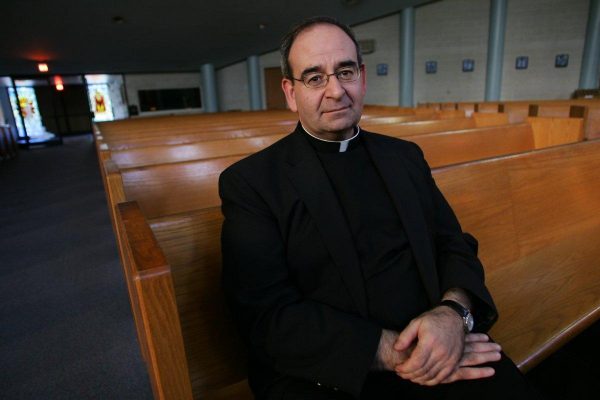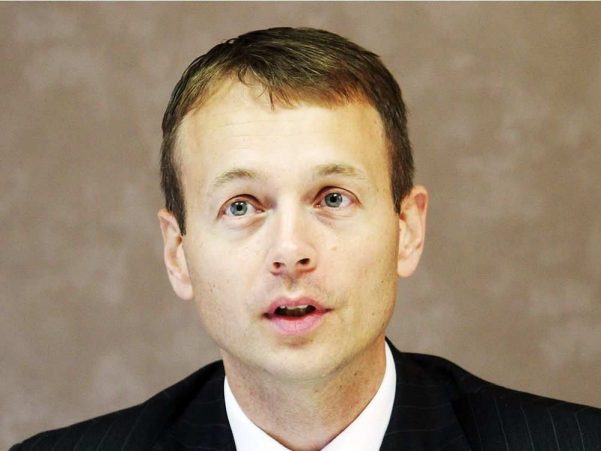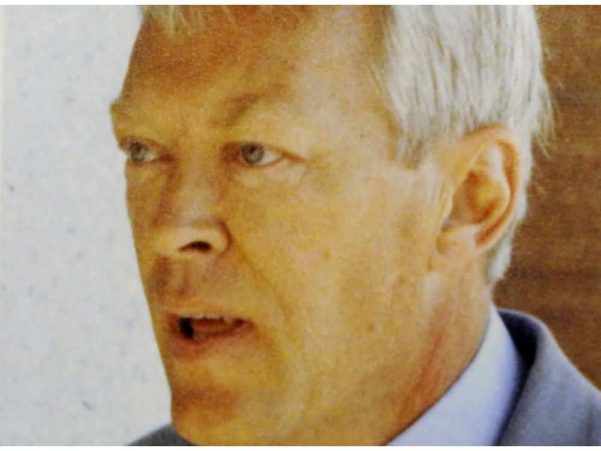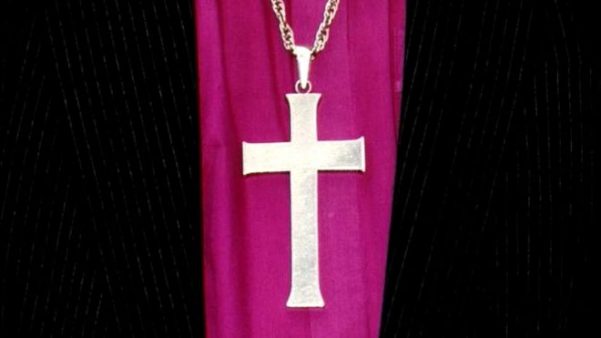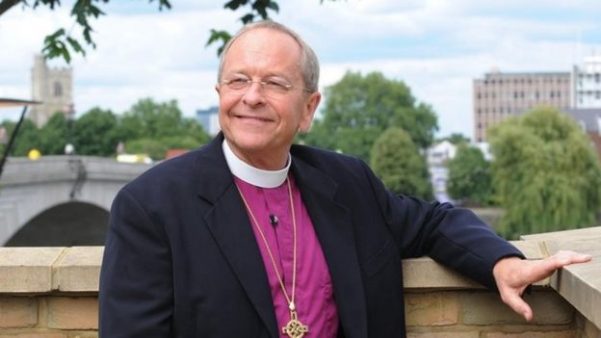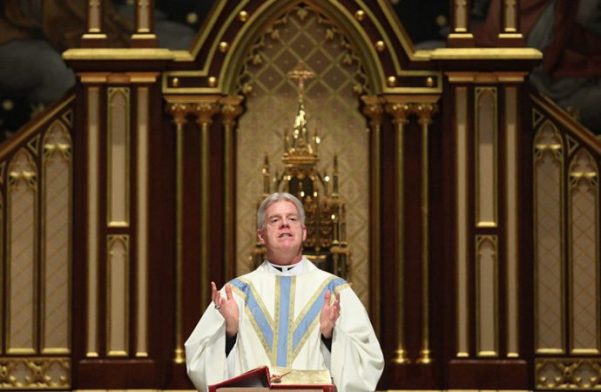By
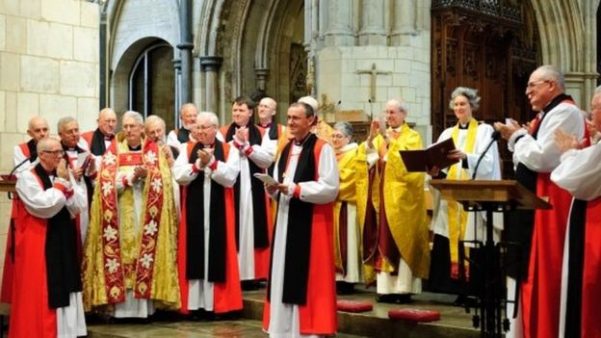
This week the Church of England found itself in a very publicly difficult situation about sexuality—again.
At the end of August, Bishop Nicholas Chamberlain, the Bishop of Grantham, came out as the first openly gay bishop with a partner. To those of us in the LGBTI community within the Church this wasn’t a surprise; we had all known for a long time.
But it has proved to be troublesome for the Church, which had chosen to purposefully conceal his relationship (Bishop Nic has always been open, if not public, about his sexuality.) When a new bishop is appointed there is an official biography and usually it includes some personal facts to paint a human picture—of the wife or husband, the children and pets, and a few details such as their like of real ale or hill walking. Oddly, these days new bishops all seem to like hill walking.
If you look at Bishop Nic’s biography there is no reference at all to the man with whom he has shared, as he has said, a loving and faithful relationship for 30 years. We now know that the Archbishop of Canterbury knew about this and indeed had them both round for dinner; the Bishop of Lincoln knew, and indeed the press office at Church House knew—it’s just that they couldn’t bear to think that anyone else would know.
This weekend has also seen the publishing of an open letter from 14 of the married gay and lesbian clergy of the Church of England, and other some married lay people, to our bishops. We wrote to share with them the joy and happiness we have in our married lives, and in the freedom to live with our wives and husbands in public, faithful and lifelong relationships. I had been with my husband for 15 years before we could marry, and being married has made a real difference—somehow the whole relationship feels more solidly grounded and we rejoice in that discovery.
The official position is that lay people can pretty much do as they please, though the Church ensured that it is impossible for gay couples to legally marry in a Church of England parish and local clergy are banned from offering services of blessing, such as those given to Prince Charles and Camilla after their civil marriage, even if the couple haven’t been involved in a notorious divorce.
Clergy are allowed to enter civil partnerships, again without a church service afterwards, and have to promise not to have sex with each other. Bishop Nic is not in a civil partnership but has said that he is celibate and in this he is entirely compliant with the current Church rules.
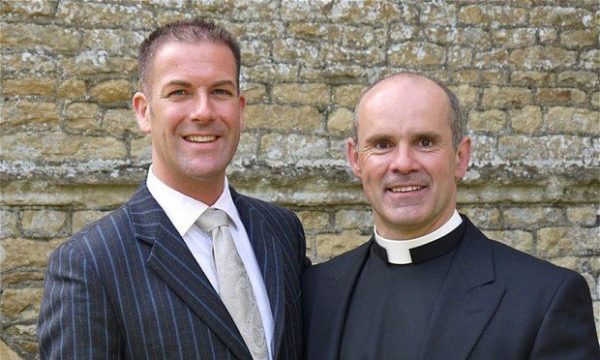
There has been an attempt at a blanket stop on marriage for gay and lesbian clergy, and those who do are officially disciplined, and a ban placed on them ever getting a new post in the Church. The Church will not consider for ordination anyone who is married to someone of the same sex, no matter how good a priest they might make.
Yet quietly, clergy are getting married or converting their civil partnerships to marriage; gay ordinands in sexual relationships are getting the nod through while appearing to comply with the selection procedures; and clergy are having sex in their civil partnerships. Priests are offering services of blessing and thanksgiving to gay and lesbian couples and parishes celebrating with them. The bishops all know this, and many even collude in the dishonesty around the current position with private words of support and public obedience to the official line. One recently married priest I know of was invited into the episcopal study, handed his letter of discipline and then the bishop’s wife arrived with two gin and tonics—and as she said “congratulations,” the bishop toasted the new couple.
Frankly, it’s a mess and an embarrassing one because everyone knows it’s a mess, and at a fundamental level is making the Church, as the archbishop himself said, look “odd.” Actually, I think it’s worse—the current stance makes us look hypocritical and foolish and undermines our ability to speak with any real authority on other moral issues. While the Church continues to treat the LGBTI community in ways that cause the archbishop sleepless nights in which he is “consumed with horror” we can hardly call out others for their treatment of the poor, the widowed and the orphaned as our faith requires us to do.
The married clergy wrote to urge the bishops to recognize that this isn’t working. We asked for some honesty and that they allow parishes freedom to celebrate our relationships without fear of retribution or censure. We aren’t expecting wedding bells in our churches just yet, but we do expect to be able to say prayers, offer blessings and to rejoice in the love that brings two people together to make a commitment to each other. We know that some in the Church won’t find this acceptable; there have always been some who find change difficult. But there is no longer a single theology of marriage and relationships in the Church and it is time this was recognized.
The bishops have banged on for two years about “good disagreement” as being fundamental to the Church’s life and flourishing—it is time for that rhetoric to become reality.
Complete Article HERE!

